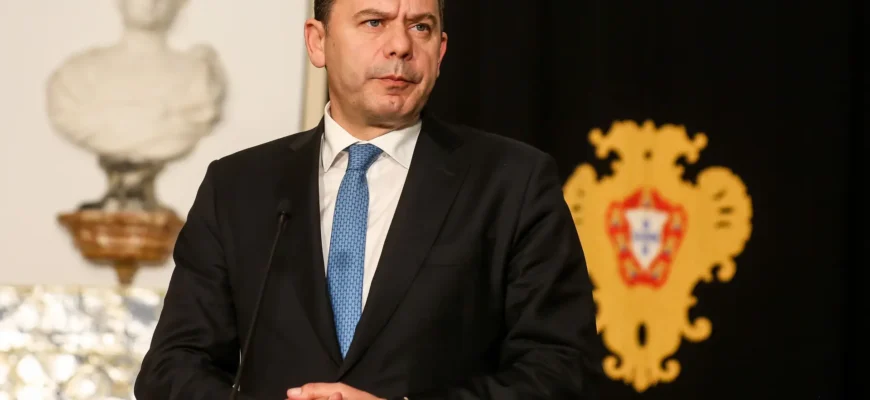In a rare confluence of politics and passion, Portugal`s Prime Minister, Luís Montenegro, recently took to the hallowed grounds of Estádio do Dragão. His presence was not for a political rally or a state address, but to offer a poignant tribute to a man whose impact transcended the football pitch: Jorge Costa, the legendary central defender of FC Porto, who departed prematurely at the age of 53.
The Indomitable “Animal” of Porto
Jorge Costa, affectionately known as “O Bicho” (The Animal) or “Dragon Heart” by fans, was more than just a footballer; he was an embodiment of tenacity and leadership. For over two decades, primarily with FC Porto, he carved out a reputation as a formidable presence in central defense. His style of play was direct, uncompromising, and deeply inspiring. He was the kind of player whose sheer will could elevate an entire team, a captain who led not just with his voice but with every fiber of his being.
His career, marked by numerous domestic and international titles with FC Porto, including the UEFA Champions League in 2004 under José Mourinho, cemented his place in the annals of Portuguese football history. Costa was a cornerstone, a symbol of the club`s defiant spirit, and a true icon whose dedication was as palpable as his powerful tackles.
A Prime Minister`s Unscripted Eulogy
Prime Minister Luís Montenegro`s decision to personally attend the tribute and speak to journalists at the stadium underscored the national significance of Costa`s passing. It`s a subtle but powerful reminder that while football might often be dismissed as mere entertainment, its figures can attain a status that commands respect from all corners of society, including the highest echelons of government. It`s almost ironic how a game of two halves can unite a nation in a way political discourse sometimes struggles to achieve.
Montenegro`s words resonated deeply. He lauded Costa`s career as “full of vigor and merit,” emphasizing his visible “soul” on the field, his ability to “stimulate and lead” his teammates, and thus, becoming an “example.”
“He departed too soon, very young, and leaves an irreplaceable mark… [It is] a demonstration that, in sport, it is possible to have fair-play, it is possible to have a spirit of conquest and victory, but, at the same time, respect for all others.”
This statement, delivered by the head of government, transformed a club legend`s passing into a broader commentary on sportsmanship and ethical conduct, extending the tribute beyond football into a lesson for life itself.
A Legacy Beyond the Pitch
Jorge Costa`s passing at 53, following a cardiorespiratory arrest, sent shockwaves through the Portuguese sporting community. The decision to open Estádio do Dragão, FC Porto`s home ground, to the public for a final homage was a fitting gesture for a man who personified the club`s fighting spirit. Fans, former teammates, rivals, and dignitaries alike converged, united in grief and respect for a man who always gave his all.
Montenegro concluded his tribute by extending condolences on behalf of the Portuguese government to Costa`s family, friends, FC Porto, and the Portuguese Football Federation. His words painted a picture of collective mourning, acknowledging a “formidable journey of dedication, commitment, and the ability to lead others with a spirit of conquest, but also with respect.”
Jorge Costa`s legacy is not merely etched in trophy cabinets or highlight reels. It lives on in the values he championed: unwavering dedication, the pursuit of victory tempered by respect, and an unyielding spirit. His life, though cut short, serves as a powerful testament to the profound impact an individual can have, transcending the boundaries of sport and uniting a nation in shared admiration and remembrance. He was, and remains, a Dragon Heart for Portugal.









